Manufactured Housing Association for Regulatory Reform
1331 Pennsylvania Avenue, NW, Suite 508
Washington, DC 20004
202-783-4087
Fax 202-783-4075
March 18,2010
VIA ELECTRONIC FILING
Alfred M. Pollard, Esq.
General Counsel
Attn. Cornrnents/RIN 2590-AA26
Federal Housing Finance Agency
Fourth Floor
1700 G Street, N.W.
Washington, D.C. 20552
Re: RIN 2590-AA26
2010-2011 Enterprise Affordable Housing Goals
Dear Mr. Pollard:
The following comments are submitted on behalf of the Manufactured Housing Association for Regulatory Reform (MHARR). MHARR is a national trade association representing the views and interests of producers of manufactured housing regulated by the Department of Housing and Urban Development (HUD) pursuant to the National Manufactured Housing Construction and Safety Standards Act of 1974, as amended, 42 U.S.C. 5401, et seq. (Act).
I. INTRODUCTION
On February 26,2010, the Federal Housing Finance Agency (FHFA) published a proposed rule to establish 2010-2011 Enterprise ~ffordableH ousing Goals for the two Government Sponsored Enterprises (GSEs) currently operating under FHFA conservatorship. This proposed rule changes both the methodology and criteria for determining compliance with the affordable housing goals, as well as the structure of the goals themselves, based on various factors mandated by Congress.
While MHARR welcomes the express acknowledgment and reaffirmation by FHFA in the preamble to the proposed rule that the GSEs, notwithstanding conservatorship, must — (1) continue to fulfill their core statutory mission, including support for affordable housing; and (2) may not use the conservatorship as a justification for withdrawing support from such market segments. (See, 75 Federal Register No. 38, February 26, 2010) at 9035-9036), it is imperative that FHFA proceed, as expeditiously as possible, to adopt a separate final rule to implement the “Duty to Serve Underserved Markets” (DTS) provision of the Housing and economic Recovery Act of 2008 (HERA), as that duty specifically related to manufactured housing regulated by the Department of Housing and Urban Development.
II. COMMENTS
The manufactured housing industry is today suffering from an unprecedented decline that is due, in significant part, to the virtual unavailability of private financing for manufactured home purchases. In 2006, the HUD Code manufactured housing industry produced 1 17,373 homes. This figure represented a significant decline from 2001 production of 193,120 homes and an even greater decrease from 1998 production levels that approached 400,000 units, but was consistent with previous cyclical industry declines. Since 2007, however, manufactured housing production and sales have fallen dramatically due, in substantial part, to the near unavailability of either public or private consumer financing for manufactured home purchases.
During 2009, the condition of the manufactured housing industry continued to deteriorate, as production and sales of new HUD Code manufactured homes fell to 49,683 homes, the lowest production level in the industry’s history. This represents a nearly 90% decline in production over a period of ten years and reflects a catastrophic loss of affordable, non-subsidized housing opportunities for American consumers. It also reflects the closure of production facilities — from approximately 420 in 1998 to 120 today – with the resultant loss of thousands of manufacturing jobs and thousands more jobs lost in other sectors of the industry, including component suppliers, home installers, home transporters, retailers, manufactured housing communities, and finance and insurance providers.
In large measure, the unavailability of private purchase-money financing that has fueled this unprecedented decline, is due to policy decisions implemented earlier this decade by the GSEs which effectively discriminate against HUD Code manufactured homes and manufactured housing consumers. As a consequence of these policies, manufactured housing obligations — which had long been a minimal component of the GSEs’ portfolios notwithstanding sustained growth in the broader housing economy — have now been drastically reduced to less than one percent of the total business portfolios of both GSEs. This has not only constricted the availability of liquidity necessary to support an economically viable level of private financing for manufactured home purchases, but is also relevant to the GSEs’ failure to meet affordable housing goals in prior years, as documented by FHFA.
Discrimination by the GSEs against manufactured housing and manufactured housing consumers is also inconsistent with federal housing policy as expressed by Congress in the Manufactured Housing Improvement Act of 2000. That legislation provides, in relevant part, that one of its primary goals is to “facilitate the availability of affordable manufactured homes and to increase home ownership for all Americans.” (See, 42 U.S.C. 5401(b)(2)). The promise of affordable manufactured housing for American families, however, means little if the private financing necessary to purchase a HUD Code home is either unavailable, or its availability is severely and unreasonably restricted.
Consequently, while MHARR acknowledges the challenging market conditions and related factors cited by FHFA in support of the proposed 2010-201 1 goals, the difficulties facing the entire housing market and the broader economy make proper GSE support for affordable housing even more important. With historically high foreclosure rates, significant unemployment and reductions in family income, more Americans, not fewer, will need and will be seeking home-ownership and housing opportunities — such as those provided by manufactured housing — that are inherently affordable. The GSEs were formed to — and statutorily charged with — providing such liquidity. That mission, in the current economic climate, is more important than ever.
More importantly, going forward, it is essential that FHFA distinguish between the broader affordable goals addressed by this proposed rule and the specific congressional DTS mandate. Under that provision, Congress, recognizing that the GSEs were not properly serving and not fulfilling their mission to HUD Code manufactured housing consumers, directed the GSEs to “develop loan products and flexible underwriting guidelines to facilitate a secondary market for mortgages on manufactured homes for very low-, low-, and moderate-income families.” (Emphasis added).
DTS thus represents a finding and declaration by Congress — independent of the broader affordable housing goals addressed by the present proposed rule — that the GSEs have not and are not doing enough to serve the manufactured housing market, as well as a remedy, directing the GSEs to do more. Given this specific congressional mandate and directive, any final DTS rule should go beyond the general Enterprise Affordable Housing Goals in mandating and evaluating the participation of the GSEs in the manufactured housing finance market. MHARR has previously documented its view regarding the substance of an appropriate DTS program in comments filed in 2009 pursuant to an FHFA Advance Notice of Proposed Rulemaking specifically regarding DTS. MHARR, accordingly, urges FHFA to act expeditiously to develop and publish a proposed regulation to implement DTS that will expand the role of the GSEs in providing necessary liquidity to support private financing for HUD Code manufactured housing purchases. This will assist the GSEs in meeting broader Enterprise Affordable Housing Goals, provide much needed relief for consumers who cannot currently obtain private financing, and help turn the industry (and the hundreds of thousands of Americans it employs) toward economic recovery.
We hope that these comments are helpful for purposes of the present docket and will help lead to the proper and expeditious implementation of separate DTS regulations.
Sincerely,
Mark Weiss
Senior Vice President
Manufactured Housing Association for Regulatory Reform
1331 Pennsylvania Avenue, N. W.
Suite 508
Washington, D.C. 20004
(202) 783-4087 (Office)
(703) 509-9489 (Direct)
(202) 783-4075 (Fax)
mmarkweiss@aol.com (Email)
cc: Mr. Danny Ghorbani, MHARR





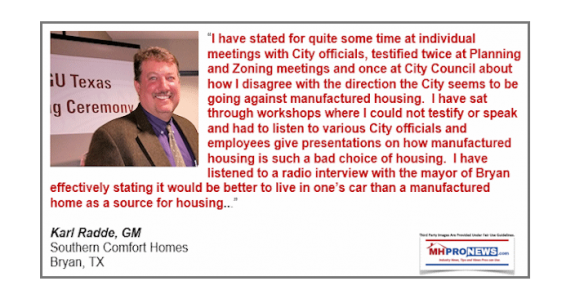

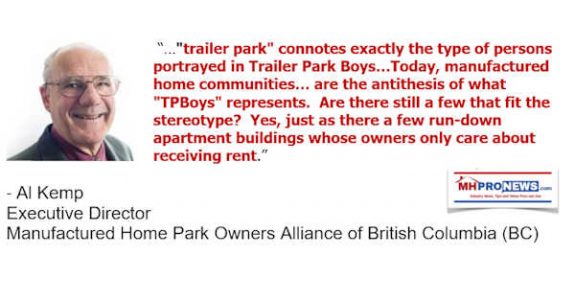

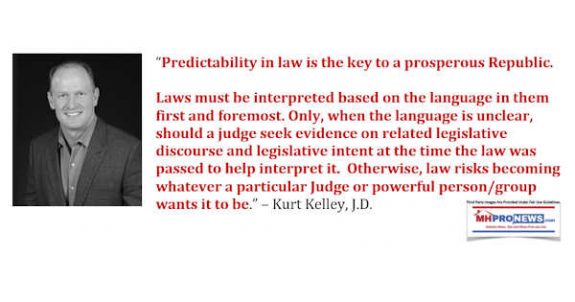

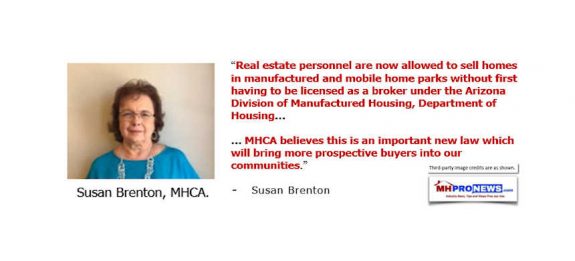
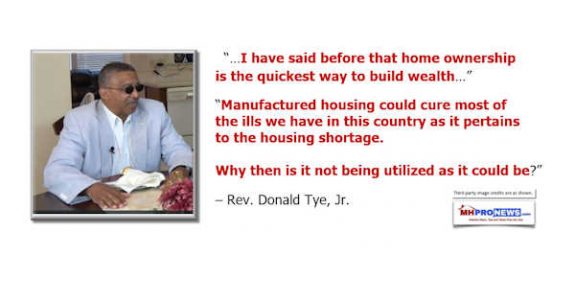
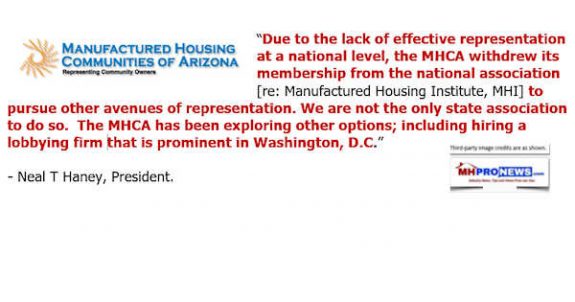

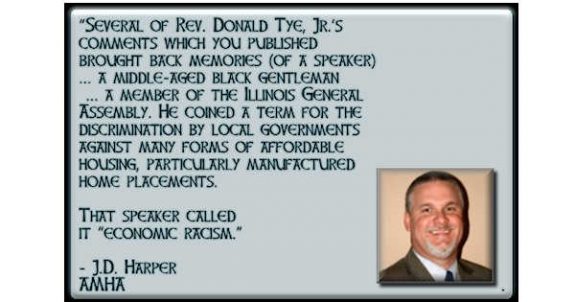


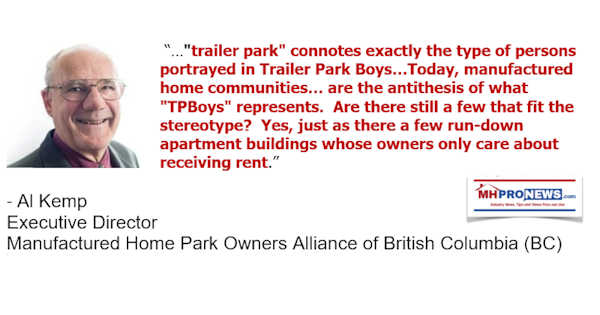
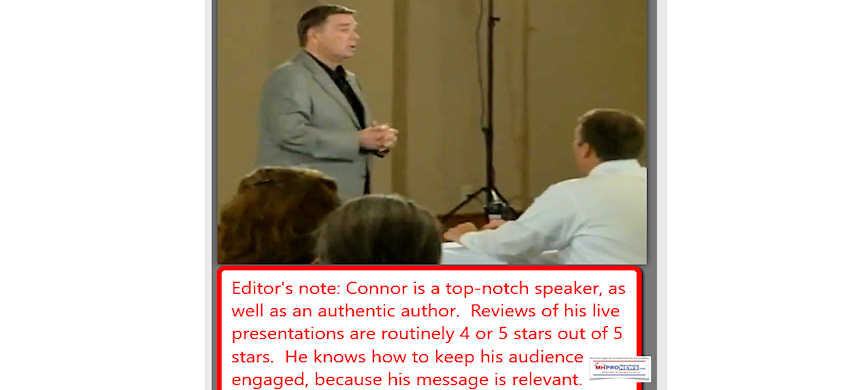


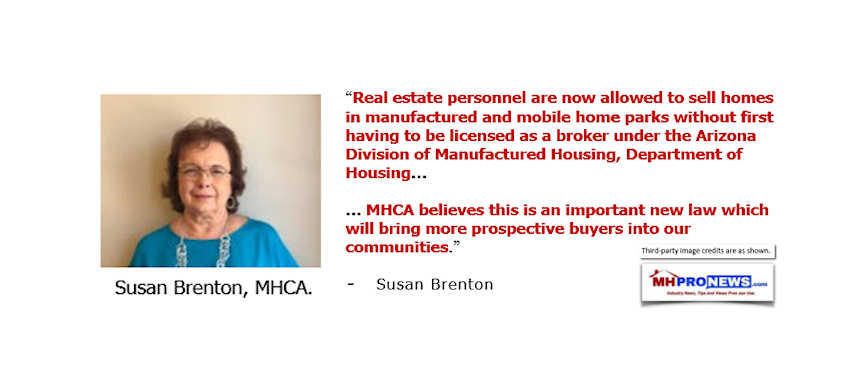
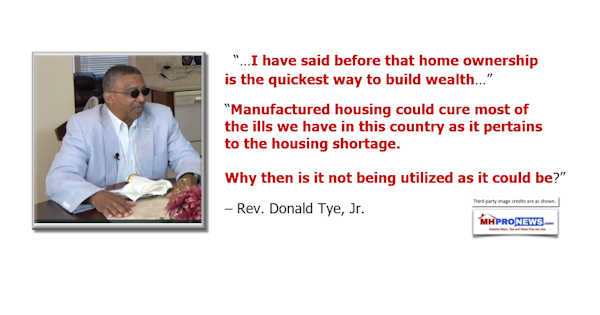
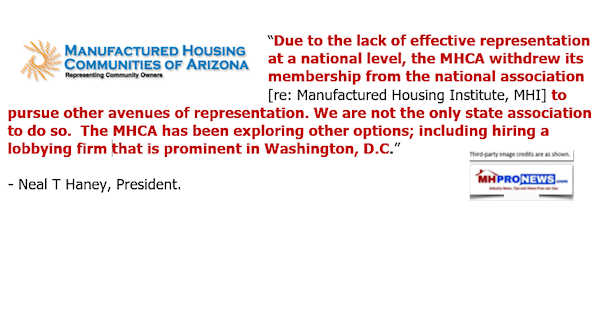

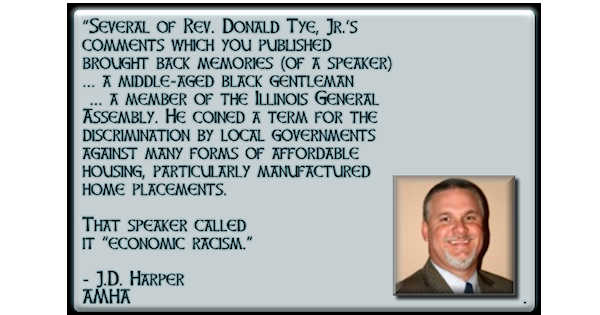
Karl Radde – TMHA, MHI, Southern Comfort Homes – Addressing Bryan City Leaders, Letter on Proposed Manufactured Home Ban
To All Concerned [Bryan City Officials, Others]: As the retail location referenced by Mr. Inderman, I would like to take a moment to address the …